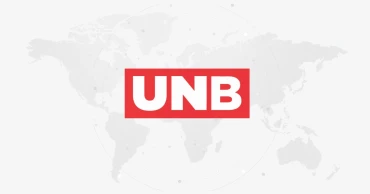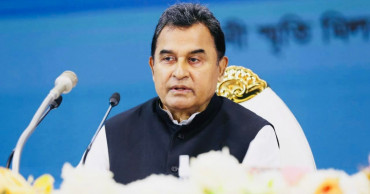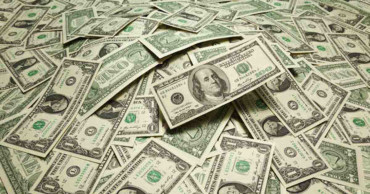foreign exchange reserve
What are the 3 reasons behind Bangladesh’s falling forex reserves?
Despite curbing imports, Bangladesh’s foreign exchange reserve fell to USD 36 billion – the lowest in 28 months – due to 3 reasons, economists believe.
The reasons are an imbalance in export-import, high dependency on imported oil and gas, and decreasing trend in inward remittance flow.
The forex reserves stood at USD 35.98 billion on Wednesday, according to data from Bangladesh Bank. The country’s reserve was USD 46.19 billion a year ago (October 19, 2021).
Read: Forex market may be more volatile unless reforms are done
Former governor of Bangladesh Bank, Dr Salehuddin Ahmed, told UNB, increasing the flow of inward remittance and curtailing import liabilities are ways to secure forex reserves, as exports are facing a slump due to the Russia-Ukraine war.
Despite increasing the cash incentives to 2.5 percent from 2 percent in the current fiscal year (2022-23), the inward flow of remittance saw a fall of 25 percent in September compared to August.
Bangladesh is receiving an average of USD 59.22 million inward remittance per day in the current month through banking channels which was USD 76.66 million in July.
Read: Bangladesh’s forex reserves now $36.90 billion
The fiscal year started with a growth trend of inward remittance while the country received USD 2.09 billion in July and USD 2.03 billion in August. But remittance fell to USD 1.54 billion in September.
Dr Abdur Razzaq, a trade expert and a former researcher of WTO, said overall exports of Bangladesh have declined by 6.25 percent in the last month, mainly due to a decline in apparel exports.
The export of readymade garments was worth USD 3.16 billion in the previous month, which is 7.52 percent lower than in September last year. Export of both woven and knit garments declined last month, he said.
Read Market-based foreign exchange rate may be introduced soon
Exporters of readymade garments have said that inflation in the USA and EU countries has become severe due to the Russia-Ukraine war. People there have cut back on purchases other than fuel and groceries.
Because the foreign buyers have reduced new purchase orders, some companies were not allowing shipment even after the products were ready, sector insiders said.
Higher dependency on importing oil and LNG gas, directly and indirectly, affected the foreign exchange reserves. The foreign exchange payment liabilities have been surging due to increasing oil and gas prices in the global markets.
Read Explainer: What it means to let taka float
3 years ago
Market-based foreign exchange rate may be introduced soon: Finance Minister
Finance Minister AHM Mustafa Kamal has said that the government is considering introducing market-based foreign currency exchange rates.
“We’re contemplating going for market-based foreign exchange rates. Today or tomorrow, we’ll have to go for market-based trading of foreign currency,” he told reporters while briefing on the outcomes of two consecutive meetings of the Cabinet Committee on Economic Affairs (CCEA) and Cabinet Committee on Government Purchase (CCGP) on Wednesday.
Read: No IMF proposal received to raise power, petroleum prices: Finance Minister
The finance minister’s remarks came against the backdrop of the recent instability in the foreign currency market where the US dollar’s exchange rate recently went up to Tk 119 from Tk 85.
Bangladesh Bank recently fixed exchange rate at Tk 95 while in private banks dollar was being traded at TK 108.
Responding to a question on re-fixing the bank lending rates, he dismissed the possibility of any upward or downward change in lending rates against the existing rates of 6-9 percent interest on deposits and bank loans.
Read: Nothing wrong in economy as Bangladesh seeks IMF loan: Finance Minister
“The current interest rates between 6-9 percent are working well,” he said.
He said many countries pursue the path of increasing interest rates to contain inflation.
“But it is very tough in countries like Bangladesh to contain inflation by increasing or decreasing interest rate,” he said, adding, the central bank here does the job in two ways – by taking fiscal measures and monitoring the market.
About foreign exchange reserve, he said the foreign currency reserve is in good state.
Read Chinese ambassador meets Bangladesh finance minister
“Our remittance is increasing while export is rising and import is decreasing”, he said, claiming that there is no crisis in the foreign currency market. The foreign exchange reserve will again go up to $48 billion soon.
Responding to another question on import of Russian fuel in roubles, the finance minister said work is in progress in this regard.
“But in such a case, Bangladesh will have to do it through currency swap. Russia has to accept our currency first,” he said.
Read No IMF proposal received to raise power, petroleum prices: Finance Minister
3 years ago
Dhaka taking IMF loan as a precaution, not for bail out: Kaikaus
Prime Minister’s principal secretary Ahmad Kaikaus on Wednesday said the current foreign exchange reserve of the country can meet all types of import expenditures for more than five months.
“We have import expenditure for more than five months in our reserve where as it is said that having more than three months of import expenditure is the symbol of strong economy. We do not have any risk,” he said.
The principal secretary said this while briefing reporters at his office on some misleading news in news papers and other media.
He mentioned that as per the prediction from various organisations like IMF, Word Bank, ADB and others the world is likely to have an economic turmoil in the coming days.
“We have given proposal to the IMF on how could we get possible fund from them as part of taking precautionary measures,” he said.
He said that he has strong objection to using ‘bail out’ words (in some media reports).
“Why bail out, is the country in a deep crisis so that we have to make the bail out?,” he asked.
He mentioned that using the terms like Bail Out is hitting country’s dignity as it is not in such kind of situation.
Read:Nothing wrong in economy as Bangladesh seeks IMF loan: Finance Minister
Kaikaus requested the media to check the matters with the IMF mission in Dhaka whether Bangladesh has fallen into a deep economic crisis like Pakistan or Sri Lanka.
“This was a regular discussion between the finance ministry and the IMF,” he said about the recent move of the government to get funds from the IMF.
He stated various types of fund assistance from the IMF by various governments of Bangladesh in 1993, 2003, 2012 and 2020.
“We are taking funds from IMF, ADB and World Bank on regular basis,” he said.
But he mentioned that Bangladesh is getting budgetary financing now, not the project financing, from them as they have trust on the country as it could utilise the fund more efficiently.
“This time we sought budget assistance, this is for meeting the deficit in balance of payment, not bail out. It is basically the money that we need as foreign currency to spend for our development activities,” he said.
Talking about the power situation, he said that the government is also concerned like others about the power so that it does not become a crisis in future.
“Thats why we are saving our power now for the coming days,” he said.
Regarding the misleading news of Indian Adani Group and Meghna Ghat power plant, he said it is just baseless.
“…why are you making horror stories. Tell the truth,” he requested the media.
He mentioned that these types of news will be harmful for he country and its possible investments from abroad.
The principal secretary said that the recent move by the government to save power through area-based load shedding has been effective and there is no need to increase it.
“We are saving 2000-3000 MW electricity and we are under our target,” he said.
Responding to a question regarding import of fuel oil from Russia, he said, if other countries can import, why can't we.
He also mentioned that the government is exploring new pockets for cheap fuel oil import.
3 years ago
Forex reserve crosses $35 billion mark for the first time
The foreign exchange reserve of the country has crossed $35 billion mark for the first time.
5 years ago






